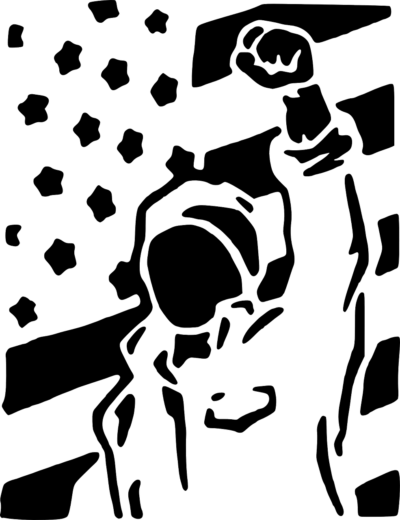As I reflect on this past year, moments of crisis stand out in my mind. I think about the ways in which God has tested me and my community. I think about experiencing a surreal and seemingly endless stream of challenges, pushing me to stand for my Jewish values that suddenly felt under attack.
I’ve come to understand that all of religion mirrors this call and response. We are confronted with a world of destruction and deficiency – and we are called upon to sanctify and rectify it through our actions. The High Holidays call on us to recommit to our response. In her Rosh Hashana sermon, one of my rabbis, Rabbi Sarah Joselow, explained the biblical practice of shofar blasts as a Jewish call to war. She emphasized that, “Each and every year, God commands us to sound this t’ruah battle cry at Rosh Hashanah, forcing us to take stock of the world around us and the role we each play in it.” Ultimately, we are judged not for how much we reflect, but by how we actualize this period of introspection.
The March for Racial Justice NYC was born out of this same practice of call and response. The March for Racial Justice is a mass mobilization organized by the founders of the Women’s March movement against white supremacy and racial injustice. When the original march was scheduled for Yom Kippur in D.C., the Jewish community called out to the organizers of the march, and they answered. Not only did they create another march for New York on Oct. 1st, so that those not able to participate due to observance could take action, they also released a statement reaffirming their commitment to including the voice of Jewish people in the struggle against oppression of all kinds. In their “Statement Regarding Yom Kippur,”Andrea Ciannavei (one of the main organizers) wrote, “Holding fast to Jewish tradition is also an act of resistance, in the face of growing anti-Semitism.” This was a clear example of what it means to look at your mistakes in an honest way and commit to do better.
This Saturday, Sept. 30, Jewish people around the world will situate themselves in the current moment. The combination of praying, fasting, and gathering in communities creates an atmosphere in which we can cultivate the central mission of the Day of Atonement – intense reflection in order to properly move forward in 5778.
As I take stock of the current moment and my actions moving forward, I can think of no more fitting way to begin the year than to participate in the March for Racial Justice the day after Yom Kippur.
Obviously, systemic racial injustice cannot be dismantled in one day. But it certainly cannot be dismantled without genuine, public displays of rejection of the status quo by the masses. On Sunday, I will actualize my commitment to making a better world and standing up to overt and systemic racism in this country and around the world.
I plan on hearing the call of justice this Sunday and taking my Yom Kippur prayers out to the streets, and I hope you will join me.
Rabbi Lord Jonathan Sacks once wrote, “We pray today for the world we will build tomorrow.”
This Yom Kippur, let’s do just that.
Aliza Lifshitz is a sophomore at Barnard College majoring in women’s, gender and sexuality studies. She is the co-president of the Jewish Activist Collective at Columbia/Barnard Hillel and a member of the JS4RJ-NY Steering Crew.
![dissent-29357_1280 | [Public Domain], via Pixabay](https://newvoices.org/wp-content/uploads/2017/09/dissent-29357_1280.png)

